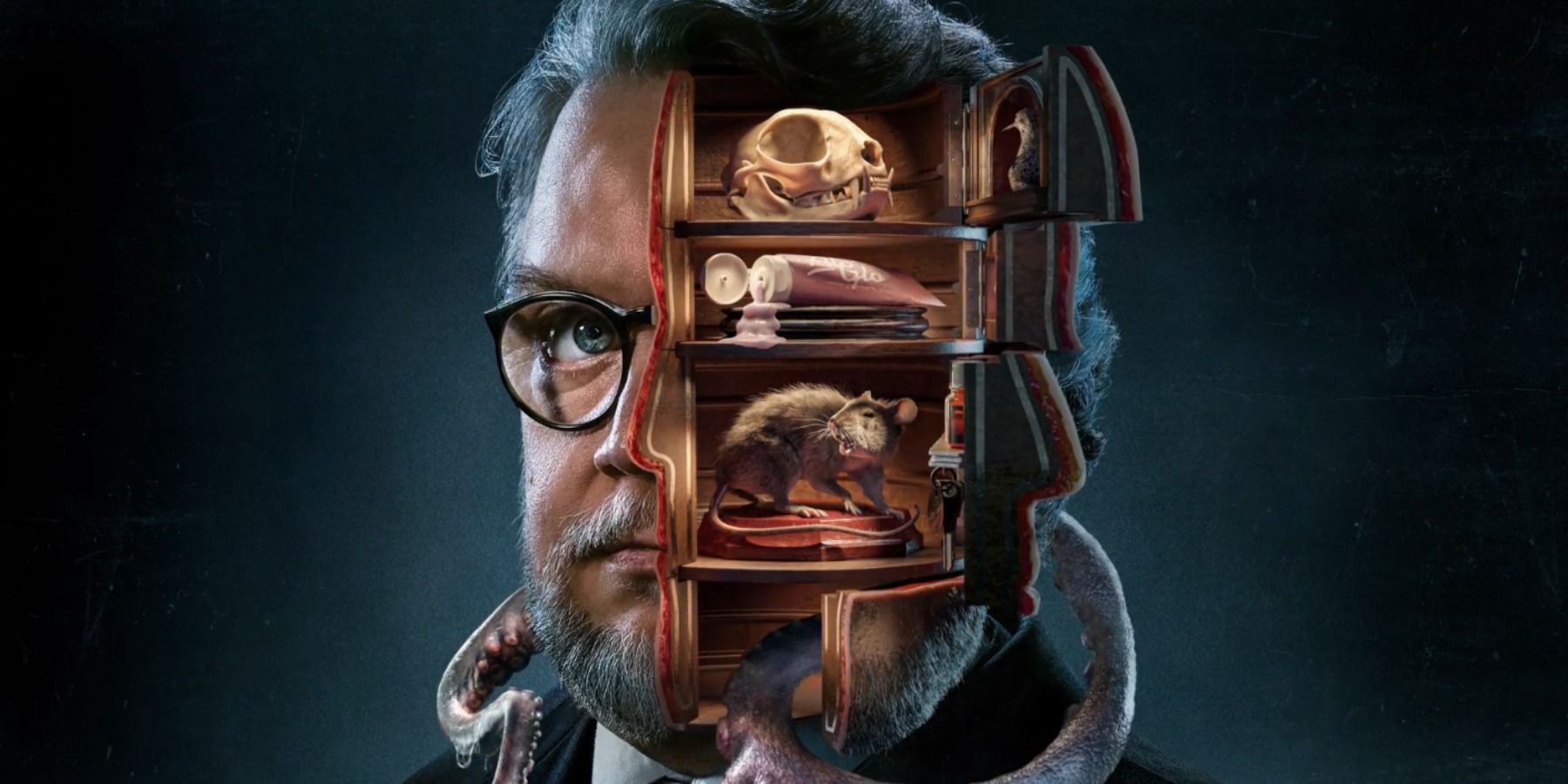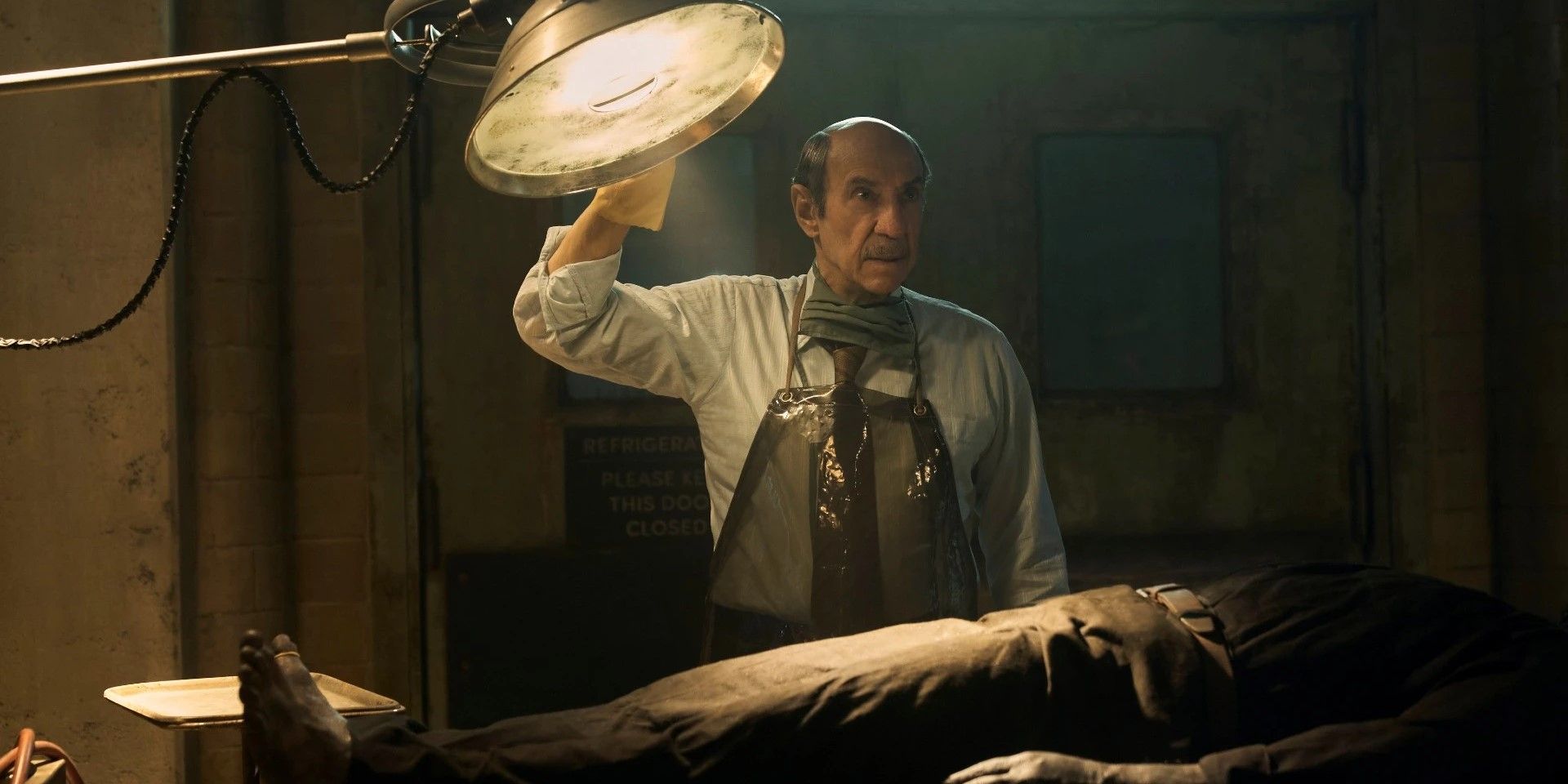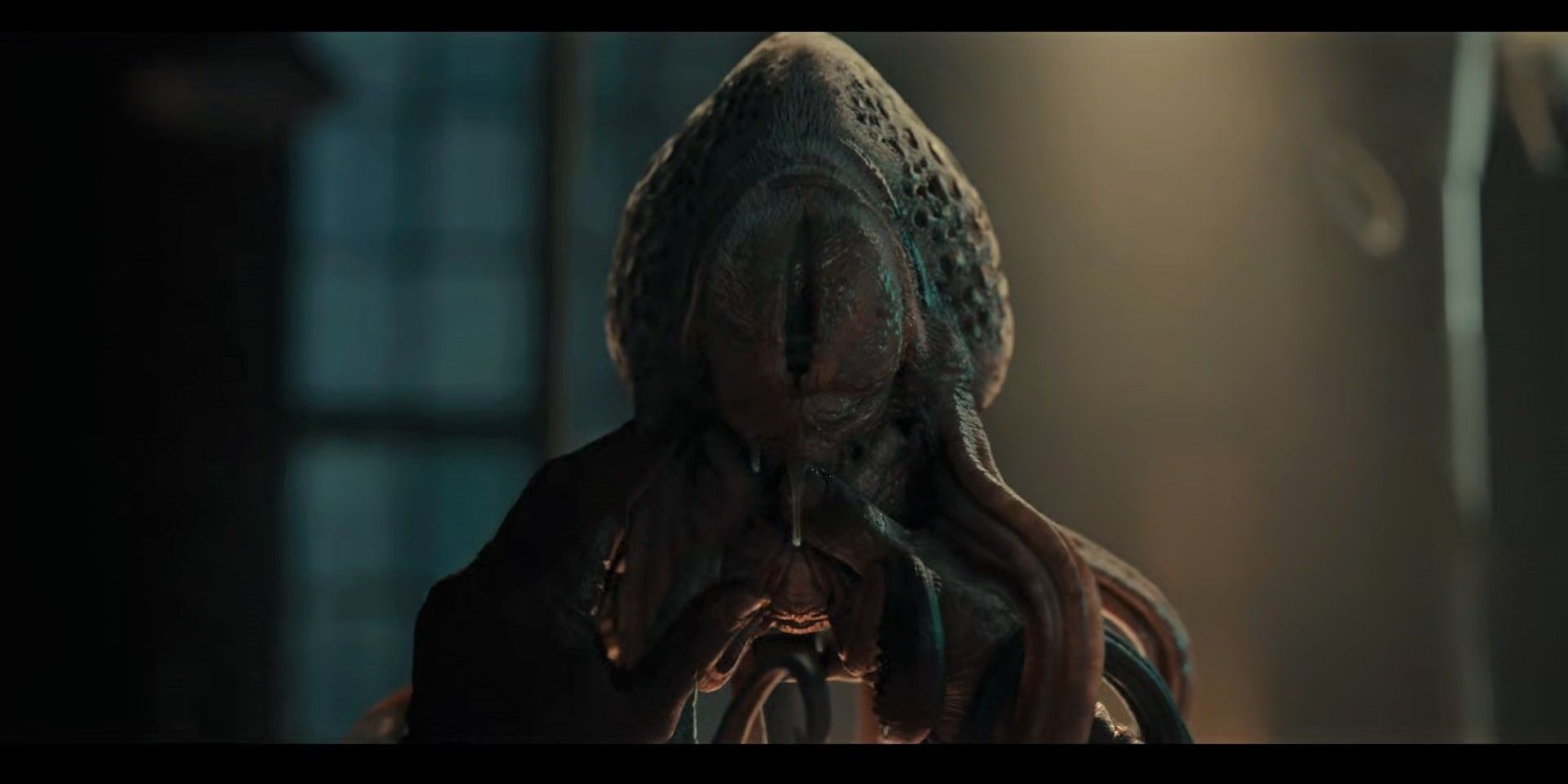As any other anthology series, Del Toro's Cabinet of Curiosities has its highs and lows. Employing a wide range of writers and directors, the Netflix series' episodes differ quite a lot from one another creative and tone-wise. There is one of them, episode 3, "The Autopsy", that just perfectly nails a very difficult genre for TV/Movies: cosmic horror.
The cosmic horror genre is attributed to American author H. P. Lovecraft, who wrote stories of the unknown forces and dangers that lurked far beyond in the infinity of space. These "Lovecraftian" stories toy with the reader’s imagination by going into more abstract territory since they deal with subjects beyond the human sphere. Such a mysterious premise often seduced filmmakers to put these stories onto the screen. But, since most of the physical descriptions of monsters and places use terms like “impossible” or “unimaginable”, it becomes hard to translate those concepts to the audiovisual medium. However, that obviously doesn’t mean it can’t be done. Director David Prior went on to craft the arguably most unique episode in the first season of the Netflix anthology horror series idealized by Guillermo Del Toro. The 60-minute episode tells the story of a terminally ill doctor who goes on to perform an autopsy on a man who lived some mysterious, violent last days.
What makes "The Autopsy" special? Firstly, there’s enough personality in the titular character for the audience to care about him. For a movie/series whose premise revolves around the threat that characters may die, it is imperative that the audience cares about said characters. Otherwise, there might be no suspense or dramatic weight to the most terrifying of scenes. In “The Autopsy”, the protagonist, Dr. Carl Winters, is a calm, solitary man who seems at peace with his recently discovered terminal cancer. There is a looming, tragic sadness surrounding this man that draws empathy towards him. His dialogues with his friend, the veteran sheriff who calls him for help, only points out how weary and discouraging life can be when one is exposed to so much pain and suffering.
The first half of the episode constantly jumps between past and present as the sheriff narrates the puzzling incidents surrounding Joe Allen, a man suspected of murder and who exploded a mysterious bomb, killing innocent mining workers as his last act on Earth. The bomb, which is actually a space rock, presents itself as a MacGuffin, being the central device in which the story’s mystery revolves around. Joe Allen’s recent past points to an inexplicable personality shift that made him a violent, unpredictable man. In the second half of the episode, the doctor is left alone with the dead bodies of Joe Allen and the miners in an improvised facility. As he investigates the cadavers, tension rises in the air as he inadvertently approaches the sinister truth.
The space rock turned out to be a ship that harbored a very dangerous species of alien. One that is a slimy, tentacled mass of pure consciousness, but no senses. An alien that controls the bodies of humans to make use of their senses, so they can exert their will. As the alien dreadfully explains his sadistic mind-torturing methods, the doctor defies its intentions. There is an interesting inversion of the number one concept within cosmic horror. In this story, it’s not the human who is diminished and punished for their blinding ignorance, but the cruel alien entity who gets called out for its blatant arrogance, which derives from the envy it feels of humans themselves. In the most twisted way, by presenting a complex and contradictory extraterrestrial being, “The Autopsy” humanizes an alien individual.
Although the villainous alien does not achieve their mind-controlling goal, none of what happens in the brilliant final minutes of this episode feel cheap or badly written. The doctor uses the last few seconds he has of individuality to sacrifice himself in stomach-churning fashion. He uses every last bit of willpower to try and prevent the alien from carrying on its disgrace. Dramatically, it all makes sense. And thematically, it all fits, for this is a story about a man who had given up trying to figure life out, but never gave up on fighting the evil within men’s hearts. A satisfying ending is not common for several episodes in various anthology series, as some authors often try to shoehorn a feature-length film into a 50-minute window.
As a TV and movie genre, cosmic horror has been getting some well-deserved attention in the 21st century. Aside from "The Autopsy", another episode within Cabinet Of Curiosities also fits the genre, albeit with a less memorable impact, "Pickman's Model", adapted from Lovecraft's short story of the same name. Outside the TV medium, films like Alex Garland's Annihilation (2018) and Richard Stanley's The Color Out Of Space (2019) are also pretty solid entries of cosmic horror within cinema. Unfortunately, Cabinet of Curiosities has not been renewed for a second season so far. One can only hope that if a second season ever sees the light of day, there might be more episodes as well-rounded, aesthetically singular, and thought-provoking as “The Autopsy”.



